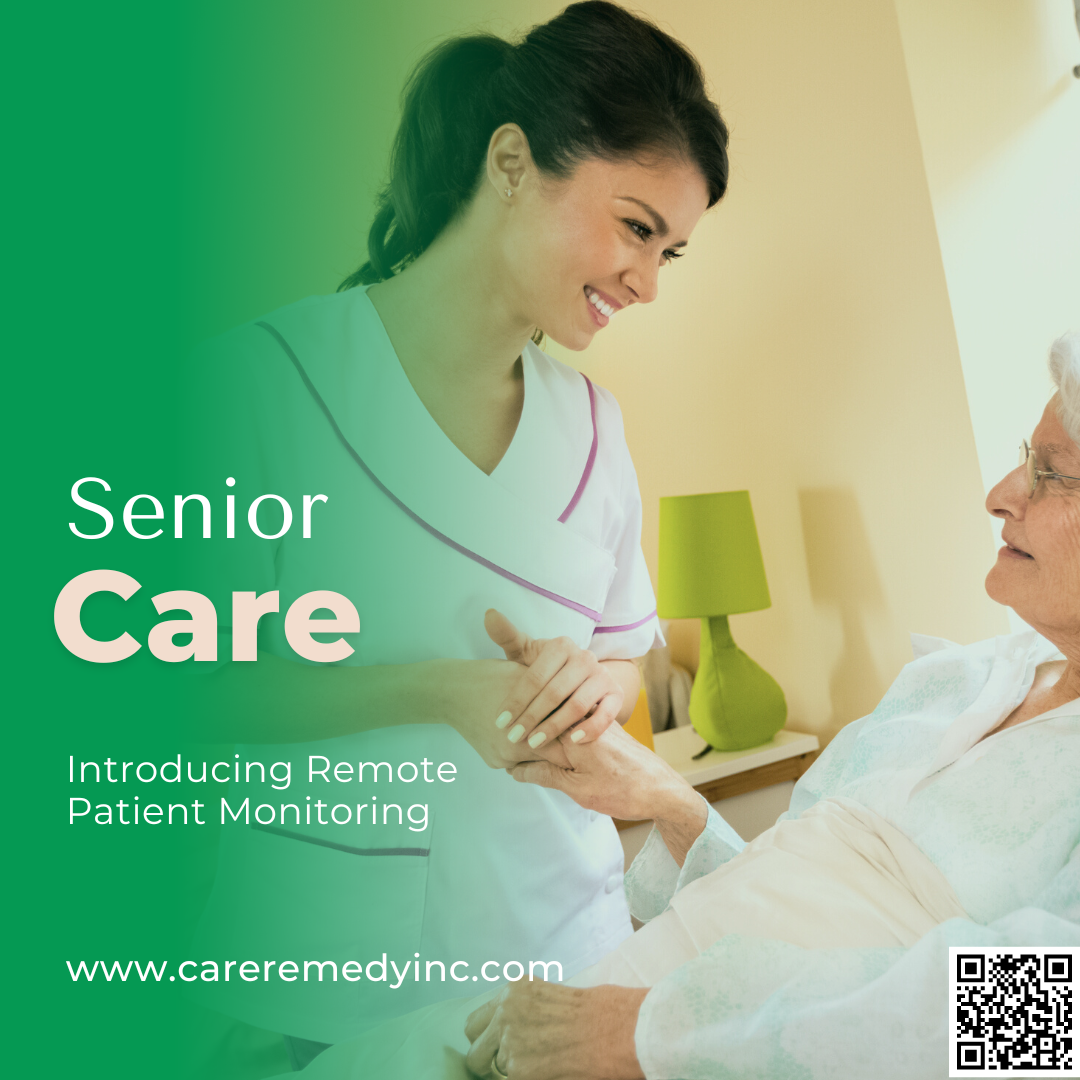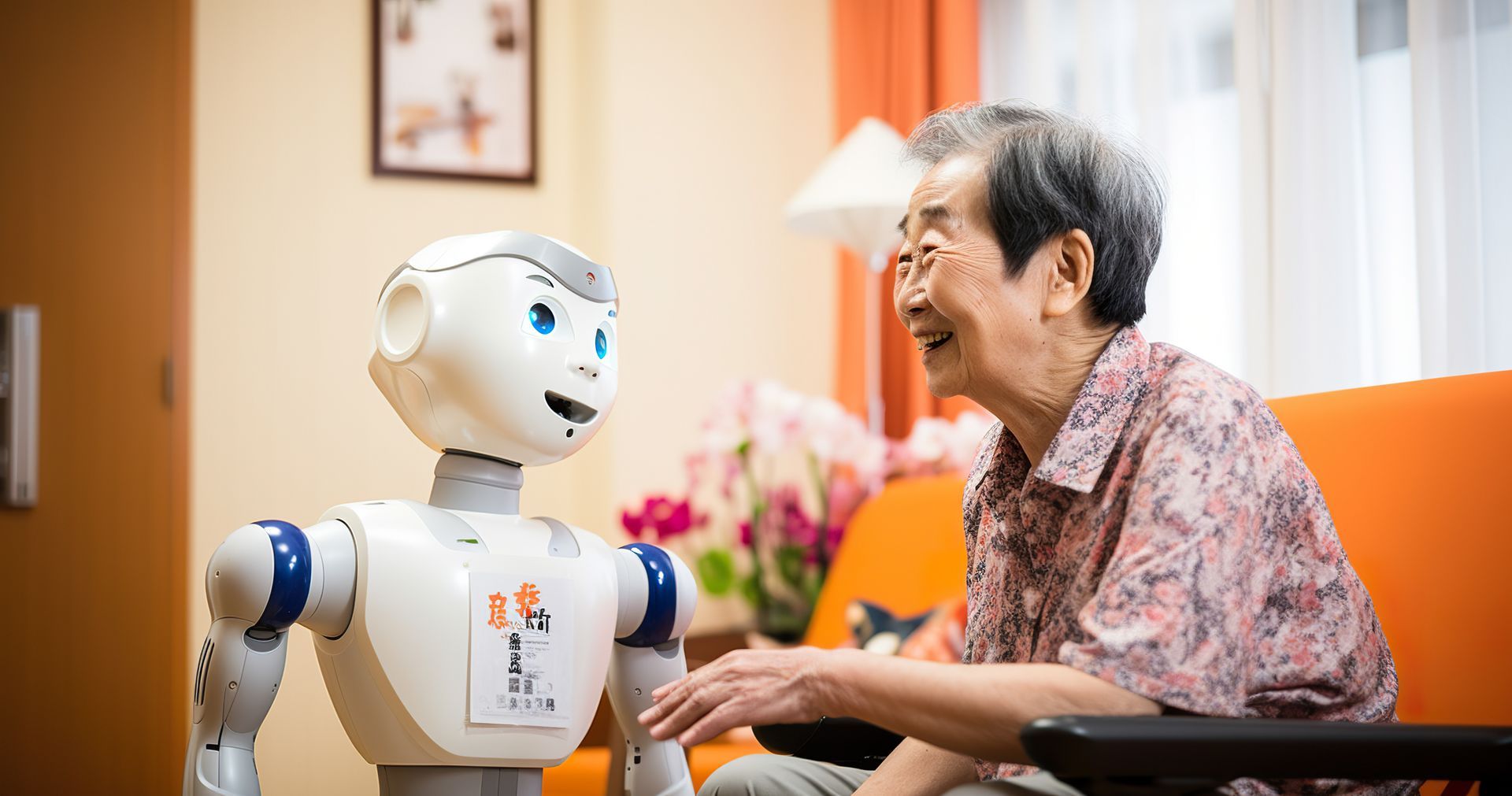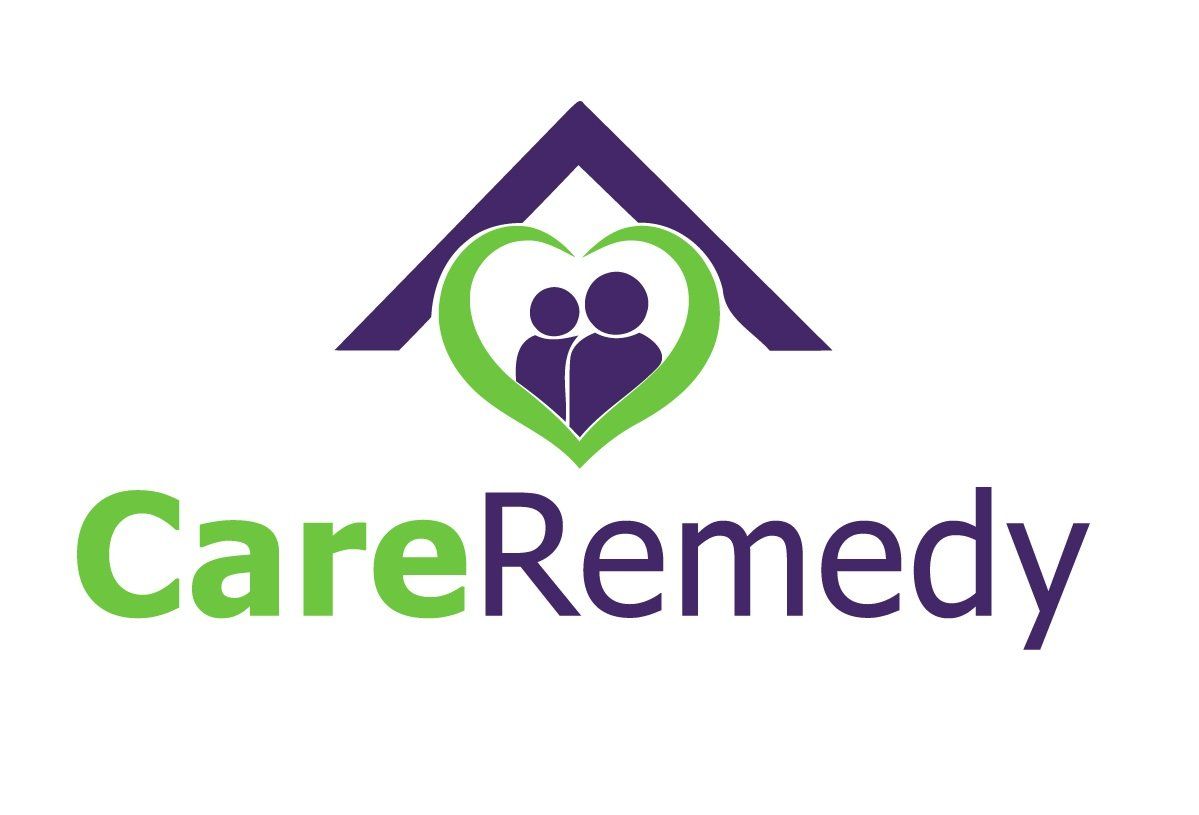Let's talk
781-9578076
Get Care
978-735-8978
Media Center
Care Remedy Media Center

Comprehensive and Compassionate Senior Care in Your Community: Serving Lexington, Newton, and Beyond
By Care Remedy Inc
•
21 Feb, 2024
At Care Remedy Inc., we are proud to offer exceptional senior care services to communities in Lexington, Newton, Woburn, Reading, North Reading, Wilmington, Burlington, and Wakefield, MA. Our commitment to providing personalized, compassionate care sets us apart. In this post, we'll delve into what makes Care Remedy Inc. a preferred choice for families in these towns and surrounding areas.

20 Feb, 2024
At Care Remedy Inc, located in the heart of Woburn, Massachusetts, we understand the evolving needs of our senior community. With a commitment to providing top-tier senior care, we offer a range of services designed to enhance the lives of the elderly in Woburn. This blog highlights the unique aspects of our services and why Care Remedy Inc stands out as a premier choice for senior care in Woburn.

By Care Remedy Inc
•
14 Feb, 2024
Caring for the elderly is a responsibility that comes with its unique set of challenges and rewards. As our loved ones age, their needs evolve, requiring a more nuanced approach to their care. This blog post aims to explore innovative strategies that can significantly improve the quality of life for seniors, ensuring that their golden years are as comfortable and fulfilling as possible. Understanding the Unique Needs of Seniors: Senior care goes beyond addressing basic health needs. It encompasses a holistic approach that includes physical, mental, emotional, and social well-being. It’s crucial to understand that each senior has unique needs and preferences, and personalized care plans are essential. Innovative Strategies for Enhanced Senior Care: Technology Integration: With advancements in technology, integrating smart devices and health monitoring systems can significantly improve senior care. Technologies like fall detectors, GPS trackers, and health monitoring apps can provide peace of mind and allow for prompt medical attention when needed. Focus on Mental Health: Mental health is as important as physical health. Activities like group therapies, memory games, and social events can help combat feelings of loneliness and keep their minds active. Nutrition and Exercise: Tailored exercise programs and nutrition plans are vital. Activities like yoga, walking, and light aerobics, coupled with a balanced diet, can significantly enhance their physical health. Home Modifications: Making changes to the living space can create a safer environment for seniors. This can include installing grab bars, ramps, and ensuring good lighting. Regular Health Check-Ups: Preventive healthcare is key. Regular check-ups can help in early detection and treatment of health issues. Community Engagement: Encouraging participation in community activities can greatly enhance their social life and overall well-being. Professional Caregiver Support: Sometimes, the expertise of professional caregivers is necessary. They can provide specialized care and give family members much-needed respite. Improving senior care requires a multifaceted approach. By embracing these innovative strategies, we can ensure that our elderly loved ones lead a life marked by dignity, respect, and joy. Remember, the quality of care we provide to our seniors today sets the standard for the care we will receive tomorrow.

By Care Remedy Inc
•
06 Feb, 2024
In an age where technology continually reshapes our lives, one of the most heartwarming applications is in the field of senior care. As our global population ages, the demand for caregivers is soaring. But can robots, powered by Artificial Intelligence (AI), be the solution we are looking for? Let’s explore this fascinating possibility. The Rise of Robotics in Elder Care Robots are no longer just the stuff of science fiction. In countries like Japan, where the aging population is a significant concern, robots have started to assist seniors in various ways. From providing companionship to helping with daily tasks, these machines are slowly becoming an integral part of elder care. AI: The Brain Behind the Machine AI is the cornerstone of modern robotics. It enables robots to learn, adapt, and respond to the needs of seniors. With advancements in AI, robots can now perform complex tasks such as monitoring health vitals, providing medication reminders, and even detecting falls or emergencies. Benefits of Robot Caregivers Consistency and Reliability : Unlike human caregivers who may face fatigue or have personal emergencies, robots can provide consistent care. Emotional Support : Surprisingly, robots like the famous 'Paro', a therapeutic robot seal, have shown positive emotional effects on seniors, offering companionship and reducing stress. Safety Monitoring : With AI, robots can monitor the senior's environment for potential hazards, ensuring their safety. Challenges to Overcome Human Touch : The biggest challenge is the lack of human emotion and touch. Can a robot truly replace the empathetic care of a human? Technology Adoption : Many seniors might find it challenging to adapt to or trust robotic technology. Cost and Accessibility : The high cost of advanced robotic systems can be a barrier for widespread adoption. Ethical Considerations As we integrate robots into senior care, ethical considerations must be addressed. This includes ensuring the dignity and privacy of the elderly and preventing any form of dependency on machines for emotional needs . Summary The potential of robots and AI in transforming senior care is immense. While they may not completely replace human caregivers, they can certainly augment the care provided, offering a blend of efficiency, safety, and companionship. As technology evolves, it will be crucial to balance the benefits of robotic care with the invaluable human touch that lies at the heart of caregiving. As we stand at the crossroads of a technological revolution in senior care, let’s open our minds to the possibilities. Embracing AI and robotics could be a significant step towards a future where the elderly receive compassionate, efficient, and sophisticated care.

By Care Remedy Inc
•
01 Jan, 2024
In the journey of aging, finding the perfect balance between independence and support is pivotal for seniors. As loved ones grow older, it's natural to seek out senior care services that can provide the necessary assistance without impeding their freedom. This delicate balance can greatly enhance the quality of life for seniors and bring peace of mind to their families. When it comes to senior care services, it is essential to understand the available options and how they cater to individual needs. From in-home care to assisted living communities, each choice offers unique benefits and challenges. By exploring these options, families can make informed decisions that empower their loved ones to remain independent while receiving the necessary support. In this article, we will delve into the world of senior care services and explore ways to find the perfect balance. We will discuss key factors to consider, such as the level of assistance needed, social interaction opportunities, and cost implications. By understanding these crucial aspects, you can make a well-informed decision that prioritizes both the independence and support of your aging loved ones. Finding the right senior care services may seem overwhelming, but with the right information and guidance, you can ensure a harmonious blend of independence and support for your loved ones at this important stage of their lives. Understanding the needs of seniors To find the perfect balance between independence and support, it is crucial to first understand the unique needs of seniors. As individuals age, they may face physical, cognitive, and emotional changes that require varying levels of assistance. Some seniors may only need help with daily activities such as grooming and meal preparation, while others may require more intensive medical care due to chronic conditions or disabilities. It is important to have open and honest conversations with seniors about their needs and preferences. This will help determine the level of assistance required and ensure that their wishes are respected throughout the decision-making process. By actively involving seniors in the discussion, families can empower them to make informed choices about their care. The importance of finding the perfect balance Finding the perfect balance between independence and support is crucial for the overall well-being of seniors. While it is important to ensure their safety and well-being, it is equally important to preserve their sense of independence and autonomy. When seniors are able to maintain a level of control over their lives, they often experience improved mental health, higher self-esteem, and a greater sense of purpose. On the other hand, excessive support can lead to feelings of helplessness and loss of identity. Seniors have a lifetime of experiences and wisdom, and it is essential to honor and respect their autonomy. By finding the right balance, families can create an environment that promotes independence while providing the necessary support. Types of senior care services available There are various types of senior care services available, each offering different levels of independence and support. The key is to match the needs and preferences of seniors with the most suitable option. Here are some common types of senior care services: In-home care : This option allows seniors to remain in the comfort of their own homes while receiving assistance with daily activities. In-home care providers can help with tasks such as housekeeping, meal preparation, medication management, and personal care. This option is ideal for seniors who value their independence and want to maintain their familiar surroundings. Assisted living communitie s: These communities provide seniors with a supportive environment that offers a range of services and amenities. Seniors live in private apartments or rooms while having access to assistance with daily activities, socialization opportunities, and on-site medical care. Assisted living communities are a great choice for seniors who value social interaction and want to live in a community setting. Memory care: This specialized care is designed for seniors with Alzheimer's disease or other forms of dementia. Memory care facilities provide a secure environment with trained staff who are knowledgeable about the unique needs of individuals with memory impairments. These facilities offer personalized care plans, engaging activities, and specialized therapies to support seniors with cognitive decline. Nursing homes: Nursing homes provide 24/7 medical care and support for seniors with complex medical needs or disabilities. These facilities have skilled nursing staff who can administer medications, provide wound care, and offer rehabilitation services. Nursing homes are suitable for seniors who require a higher level of medical supervision and assistance. Factors to consider when choosing senior care services Choosing the right senior care services involves considering various factors that can significantly impact the balance between independence and support. Here are some essential factors to consider: Assessment of needs: Conduct a comprehensive assessment of the senior's needs and preferences. This assessment should include an evaluation of their physical, cognitive, and emotional well-being. It is essential to consider any existing medical conditions, mobility issues, or cognitive impairments. Location: Consider the location of the senior care facility or service. It is important to choose a location that is convenient for family members to visit and accessible to necessary amenities such as healthcare facilities, shopping centers, and recreational activities. Cost implications: Understand the financial implications of different senior care options. Determine the budget and explore payment options such as long-term care insurance, government assistance programs, or personal savings. It is important to ensure that the chosen option is affordable and sustainable in the long run. Staff qualifications and training : Research the qualifications and training of the staff members at the senior care facility or service. Ensure that they have the necessary expertise and experience to provide high-quality care. Look for facilities that invest in ongoing training and education for their staff. S ocial interaction opportunities: Consider the social interaction opportunities provided by the senior care service. Socialization is crucial for seniors' mental and emotional well-being. Look for facilities that offer engaging activities, outings, and opportunities for social interaction with peers. Assessing the level of independence needed To find the perfect balance between independence and support, it is important to assess the level of independence needed by the senior. This assessment should consider the senior's physical abilities, cognitive function, and emotional well-being. Here are some key points to consider: Physical abilities: Evaluate the senior's ability to perform daily activities such as bathing, dressing, and meal preparation. Determine if they require assistance with mobility, medication management, or other physical tasks. Cognitive function: Assess the senior's cognitive abilities, including memory, decision-making, and problem-solving skills. This assessment will help determine the level of cognitive support needed, especially for seniors with conditions such as Alzheimer's disease or dementia. Emotional well-being: Consider the senior's emotional well-being and social needs. Assess their preferences for social interaction, hobbies, and activities that bring them joy and fulfillment. It is important to choose a senior care service that can provide opportunities for meaningful engagement and emotional support. Finding senior care services that offer support and independence Finding senior care services that offer the perfect balance between support and independence requires thorough research and consideration. Here are some steps to help in the process: Research and gather information: Conduct thorough research on different senior care services available in the desired location. Read reviews, visit websites, and talk to professionals in the field to gather as much information as possible. Visit facilities and talk to staff: Schedule visits to senior care facilities to get a firsthand experience of the environment and services offered. Take the opportunity to talk to staff members, ask questions, and observe how they interact with residents. Seek recommendations: Reach out to friends, family, or healthcare professionals for recommendations. Personal experiences and insights can provide valuable information when making a decision. Review contracts and policies: Carefully review contracts, policies, and pricing structures of potential senior care services. Ensure that all terms and conditions are clear and transparent before making a commitment. Trust your instincts : Lastly, trust your instincts and listen to your loved one's preferences. Pay attention to how you feel during visits and interactions with staff members. It is important to choose a senior care service that aligns with your values and gives you peace of mind. Creating a personalized care plan Once the right senior care service has been chosen, it is important to create a personalized care plan that caters to the specific needs and preferences of the senior. A personalized care plan ensures that the senior receives the appropriate level of support while maintaining their independence. Here are some steps to create a personalized care plan: Assess individual needs: Collaborate with the senior, healthcare professionals, and senior care providers to assess the individual needs, preferences, and goals. This assessment should cover physical, cognitive, emotional, and social aspects. Identify specific services required : Based on the assessment, identify the specific services required to meet the senior's needs. This may include assistance with personal care, medication management, meal preparation, transportation, or social activities. Prioritize independence: Ensure that the care plan prioritizes the senior's independence and autonomy. Identify areas where the senior can maintain control and make decisions, while providing the necessary support in areas where it is needed. Regularly review and update : Regularly review and update the care plan as the senior's needs change over time. This allows for flexibility and ensures that the care plan continues to meet the evolving needs of the senior. Tips for maintaining a healthy balance Maintaining a healthy balance between independence and support requires ongoing effort and communication. Here are some tips to help maintain this balance: Regular communication: Maintain open and regular communication with the senior and the senior care service provider. This allows for ongoing assessment of needs and ensures that any concerns or adjustments can be addressed promptly. Encourage independence: Continuously encourage and support the senior in maintaining their independence. Provide opportunities for decision-making, engagement in activities, and involvement in their own care whenever possible. Promote social interaction : Foster social interaction and connections for the senior. Encourage participation in group activities, outings, and opportunities to interact with peers. Socialization is essential for maintaining emotional well-being and a sense of belonging. Monitor and adjust support: Regularly monitor the level of support provided to ensure that it aligns with the senior's needs. Be open to adjusting the level of support as necessary to maintain the desired balance between independence and assistance. Advocate for the senior: Be an advocate for the senior's needs and preferences. Ensure that their voice is heard and respected throughout the caregiving process. This can involve advocating for appropriate medical care, personalized services, and a safe and supportive environment. Conclusion: Providing the best care for seniors Finding the perfect balance between independence and support is crucial when it comes to senior care services. By understanding the needs of seniors, exploring the available options, and considering key factors, families can make informed decisions that prioritize the independence and support of their aging loved ones. By assessing the level of independence needed and finding senior care services that offer the right balance, families can create a personalized care plan that caters to the specific needs and preferences of the senior. Maintaining a healthy balance requires ongoing effort, communication, and a commitment to promoting independence and social interaction. Ultimately, the goal of senior care services is to provide the best care possible while honoring the individuality and autonomy of seniors. With the right information and guidance, families can navigate the world of senior care services and find the perfect balance between independence and support for their loved ones at this important stage of their lives. Remember, the journey of aging is unique for each individual, and finding the perfect balance is a continuous process. With patience, understanding, and a commitment to quality care, seniors can enjoy a fulfilling and meaningful life while receiving the necessary support they need.

By Care Remedy Inc
•
17 Dec, 2023
In today’s fast-paced digital era, technology plays a vital role in keeping us connected and informed. However, for many seniors, navigating the ever-evolving tech landscape can be daunting. At Care Remedy Inc, we understand these challenges and are dedicated to providing comprehensive tech support tailored specifically for seniors.

By Care Remedy Inc
•
10 Dec, 2023
NEMT provides transportation to individuals who are unable to drive themselves or have no other means of getting to their medical appointments. This is especially important for those with chronic illnesses who require regular medical care, such as dialysis, chemotherapy, or routine check-ups.
Home Health Care
We'll send you the best to treat you with care and respect. Our caregivers have a heart to serve & a desire to make a difference in the lives of others.
CONTACT US
Office: 781-957-8076
info@careremedyinc.com
Fax Number : (978) 409-3374
100 TradeCenter, Suite G-700
Woburn, MA 01801
USEFUL LINKS
STAY INFORMED
Subcribtion
Thank you for contacting us.
We will get back to you as soon as possible
We will get back to you as soon as possible
Oops, there was an error sending your message.
Please try again later
Please try again later
© 2024
All Rights Reserved | Care Remedy Inc



